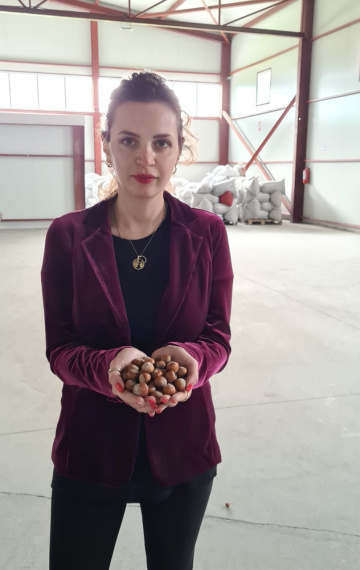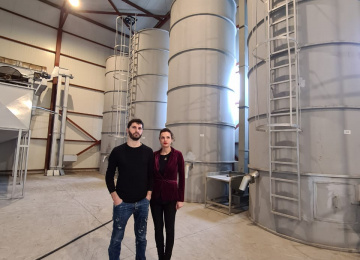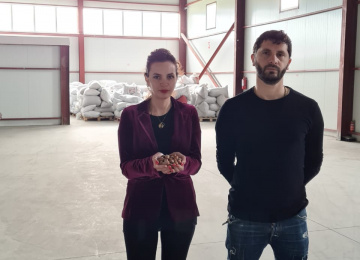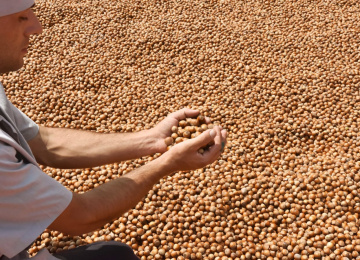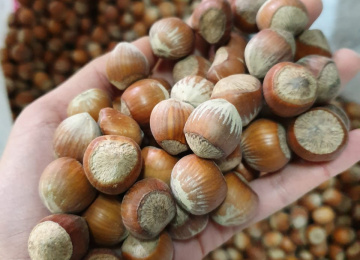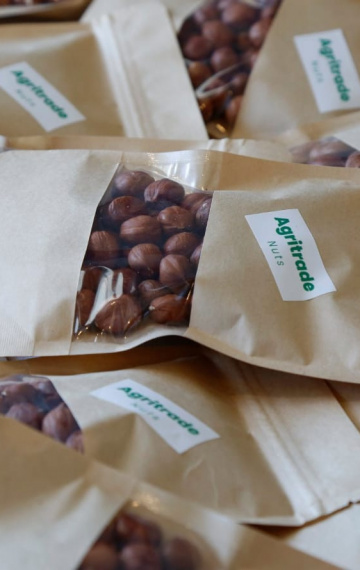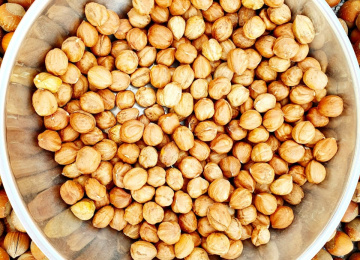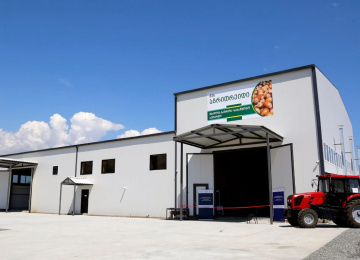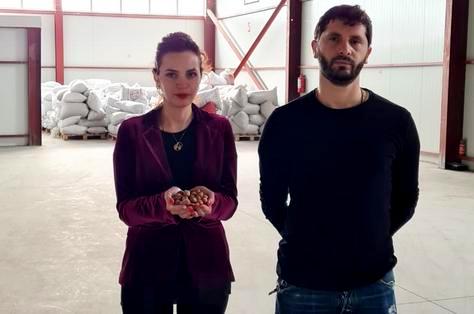
The region of Kakheti in Georgia is famous for its high-quality hazelnuts. Baia Saluqvadze and her husband, Levan Bolqvadze, took their first steps in the hazelnut business more than seven years ago and decided to explore the immense potential these delicious nuts have to offer. In 2019, they launched a new storage enterprise called Agritrade, in their village, Tela, and today they have become a major exporter. While only about 20 are employed directly at the enterprise, about 150 locals are indirectly involved as farmers and collectors, and benefit from Agritrade’s work.
Storing the future for local farmers
Hazelnuts are part of Georgian culture and of major economic importance as a source of income for more than 50,000 Georgian farmers. Among them are farmers who store their crop at Agritrade’s facility.
Agritrade allows local farmers to help out with harvesting hazelnut by providing necessary equipment, and lets them dry and store the product year-round at minimal cost. In 2020 alone, its first year of operations in Kakheti, Agritrade provided services to more than 100 local farmers and took in some 1,000-1,500 tonnes of shelled hazelnuts.
“Knowing that their hazelnuts are safely stored is an additional benefit for them and they can live peacefully for the rest of the year,” says Baia Saluqvadze.
If stored accordingly, hazelnuts can last up to 12 months and maintain their nutritional benefits. But when they’re stored in the wrong conditions, hazelnuts deteriorate in about 3-4 months. That’s not something the farmers need to worry about when they store their crop with Agritrade: the building is constructed specifically to maintain hazelnut quality in ideal conditions.
Exporting from Kakheti to Canada and China
Georgia is the fifth largest exporter of shelled hazelnuts in the world, after Turkey, Italy and Azerbaijan, according to Tridge, the global sourcing hub for agriculture and food products. Moreover, its hazelnuts travels as far as Canada and, with Agritrade’s efforts, are now being exported to China.
Previously, Agritrade could only export hazelnuts from western Georgia, because they did not have the necessary equipment for sorting products in the Kakheti region. The company had to buy hazelnuts in Kakheti, transport them across the country, and ship them from there to France, Austria, Netherlands, England, Canada, and China.
With the support from the Food and Agriculture Organisation of the United Nations (FAO) and the EU as part of its ENPARD and EU4Business Initiative, Agritrade purchased a new calibration line, a vertical elevator, and conveyor. Before shelled hazelnuts can be processed and exported, they need to be sorted by size using a calibration line.
“This was a major incentive to start exporting not only from western Georgia but from eastern parts of the country as well,” says Saluqvadze.
Agritrade’s Kakheti hazelnuts can now be directly exported to China, generating more export opportunities not only for the company itself but for the entire region, and helping Georgia’s place among the top hazelnut exporters in the world.
“This was one of the reasons why we set up Agritrade: to expand to Chinese and EU markets where there is high demand for shelled hazelnuts,” recalls Saluqvadze.

